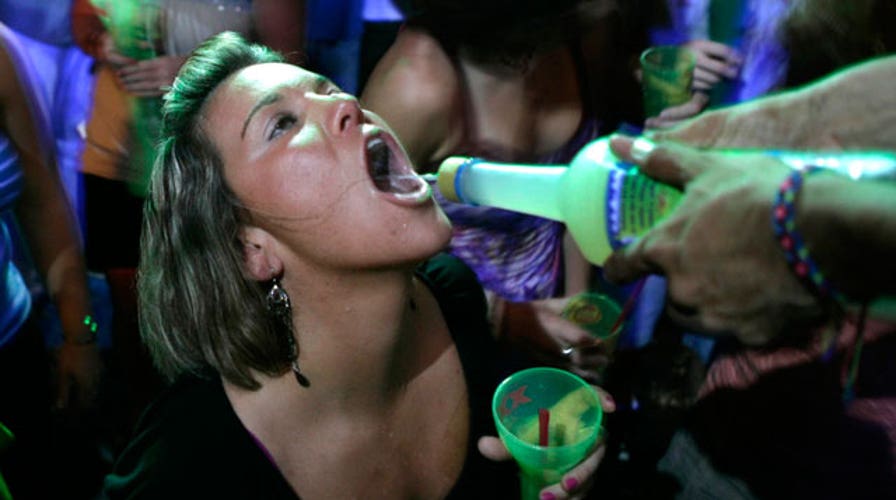Teen binge drinking. As American as baseball and apple pie, right? In fact, many adults just assume that it’s just one of the many rites of passage towards adulthood like losing your virginity or learning how to drive.
Some people fault the changing laws that raised the legal drinking age for leading to what some think has been an increase in teen binge drinking (defined as 5 or more drinks in a 2 hour period). After all, the thinking goes, if a 19 year old were able to go to a bar and drink legally, perhaps they then wouldn’t drink to excess in house or dorm parties.
But, in fact, according to a recent University of Michigan Institute of Social research Study, teen binge drinking has gone down in recent years (from 22% in 2005 to 18.1% in 2011). Unfortunately, what has stayed constant has been a phenomenon known as extreme binge drinking (extreme binge drinking is defined as 10 or more drinks in a row).
What we do know is that raising the legal drinking age saved lives. When the National Drinking Age Act of 1984 went into effect and states were compelled to eventually raise their minimum drinking age to 21—or face federal funding cuts—an estimated 1,000 lives per year were saved in decreased highway fatalities—that’s almost 30,000 lives saved by a change in federal legislation.
[pullquote]
But some have argued that this raising of the drinking age—thus criminalizing teenage drinking behavior—has driven teen drinking underground into basement parties, dorm benders and house binge-drinking fests.
But that recent University of Michigan Institute for Social Research sheds some interesting light on this subject. Here are some of the facts from that study:
--About one in five seniors report binge drinking. As mentioned previously, that percentage has decreased from 22% in 2005 to 18.1% in 2011.
--One in ten high school seniors have engaged in “extreme binge drinking” (10 or more drinks in a row) while 5.6% have consumed 15 or more drinks.
--Thus, as mentioned, while the percentage of high school seniors who binge drink overall has gone down, the percentage of extreme binge drinking has stayed virtually the same in recent years—which may explain why emergency room visits for kids in this age group have not decreased.
--Boys (24.7%) were more likely than girls (15%) to participate in all levels of binge drinking.
--Binge drinking was far more common among white students (23.8%) than black students (7.6%).
--High school seniors with college-educated parents were more likely to binge drink; but students who did not have college-educated parents were more likely to engage in extreme binge drinking.
--Students from rural areas were more likely to engage in extreme binge drinking than students in urban or suburban communities.
What we see from this research is that demographics do play a role in binge drinking; things like gender, race, education and urban versus rural lifestyles play a contributing factor to whether or not a young person binge drinks.
So as a parent, what can you do to help your child avoid some of the dangerous outcomes --including death -- associated with binge drinking?
First of all, it’s important to have a healthy, open dialogue with your children wherein you can discuss the dangers and consequences of binge drinking. But, in my experience, it’s best to not overly demonize drinking, thus making it a “forbidden fruit” and where you run the risk of your children tuning you out as being too out of touch.
Second, make sure that you talk to your children about whether or not there is a family history of drug or alcohol abuse or addiction. While having a family history of addiction does not mean that your child will also necessarily develop a problem, it does mean that they may have a predisposition towards addiction and thus need to be more careful in their alcohol consumption habits.
Third, don’t try to be the “cool parent” that hosts alcohol parties at your home—or, worse yet, that parent who drinks or drugs with their kids. Big mistake.
Fourth, be a good role-model as a parent when it comes to your own alcohol behavior. While this doesn’t mean that you should never have a glass of beer or wine in your own home, you should definitely not be drinking to excess or acting irresponsibly when you do drink.
Finally, create an environment of love and trust so that your children feel comfortable talking to you about the many difficult and tempting drug and alcohol situations that they will inevitable face in their teen years.

